The Wind (1982)
Genre : Drama
Runtime : 1H 40M
Director : Souleymane Cissé
Synopsis
Two Malian teenagers, Bah and Batrou, from different backgrounds, meet at secondary school. Bah is the descendent of a great tribal chieftain. Batrous father, a provincial military governor, represents the new ruling power. The two teenagers are part of a generation that rejects the established order and challenges the society in which they live.

A team of journalists investigate how human trafficking and child labor in the Ivory Coast fuels the worldwide chocolate industry. The crew interview both proponents and opponents of these alleged practices, and use hidden camera techniques to delve into the gritty world of cocoa plantations.

Caught in the stranglehold of debt and structural adjustment, Africa is fighting for its survival. In the face of disaster, representatives of African society bring an action against international financial institutions. The trial takes place in Bamako, in the yard of a house, among its inhabitants.
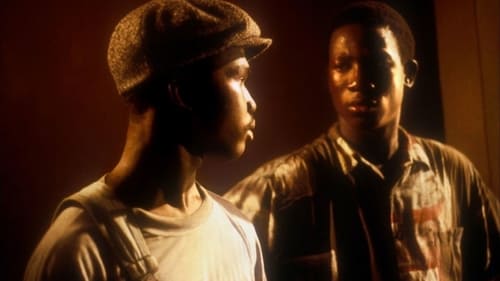
Though gay-themed stories about "coming out" and accepting one's sexuality are not uncommon in Western countries, such tales are still rare in many conservative African nations. Considered a ground-breaking film in its native Guinea, and filmed amidst a storm of controversy, Mohamed Camara's Dakan is the first of its nations films to directly address issues surrounding homosexuality. The story centers on the romance between two 20-year-old men, Manga and Sory who are first seen making out in a car. The trouble begins when Manga tells his widowed mother about his love for Sory, who is busy contending with his outraged father. The parents insist that the two never see each other again. Manga's mother then uses witchcraft to cleanse her son and change him into a heterosexual. Time passes and eventually Manga begins to date a girl. But it soon becomes apparent that try as he might, Manga's heart belongs to Sory.
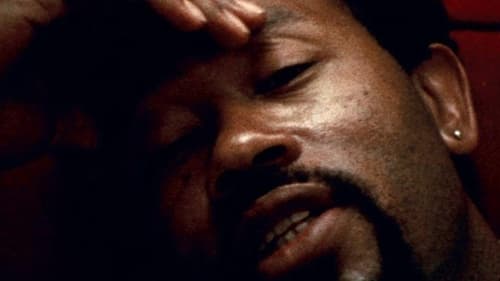
The portrait of Eldridge Cleaver, the "Minister of Information" for the Black Panthers movement, in exile in Algiers.
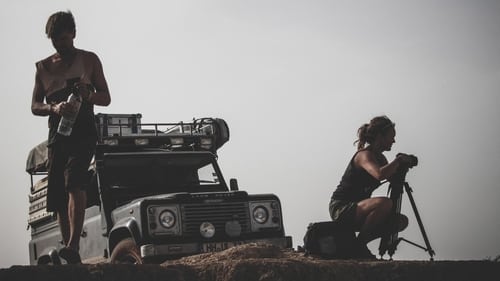
When Lena and Ulli start the engine of their old Land Rover, Lady Terés, they have a plan: to drive from Hamburg to South Africa in six months. What they don't know yet is that they won't ever get there. Two totally different characters, jammed together in two square meters of space for almost two years, they experience what it really means to travel: leaving your comfort zone for good.
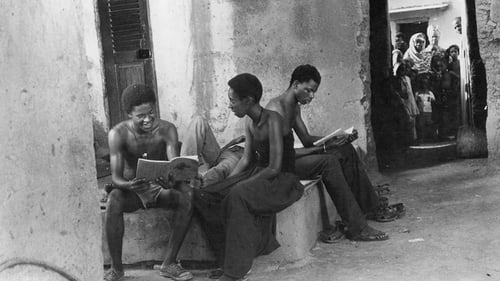
Two Malian teenagers, Bah and Batrou, from different backgrounds, meet at secondary school. Bah is the descendent of a great tribal chieftain. Batrous father, a provincial military governor, represents the new ruling power. The two teenagers are part of a generation that rejects the established order and challenges the society in which they live.

Road documentary that delves into the musical and religious expressions of sub-Saharan Africa. Through Mauritania and Mali, the film documents the lives of Dogon, griots, musicians and instrument makers who, through oral accounts, explain why music plays a fundamental role in the socio-religious organization of peoples. The film culminates its search with the recording of the performance of the traditional Dogon mask dance, in Begnematou, a small village lost in the desert.

“Those Who Come, Will Hear” proposes a unique meeting with the speakers of several indigenous and inuit languages of Quebec – all threatened with extinction. The film starts with the discovery of these unsung tongues through listening to the daily life of those who still speak them today. Buttressed by an exploration and creation of archives, the film allows us to better understand the musicality of these languages and reveals the cultural and human importance of these venerable oral traditions by nourishing a collective reflection on the consequences of their disappearance.

In the Bernese Alps, the Agassizhorn peak memorialises Louis Agassiz – a controversial 19th-century scientist, who not only named the mountain after himself, but who claimed he had discovered the Ice Age and went on to become one of the century's most virulent, most influential racists.

Beginning in South Africa under the apartheid regime, the film follows a young girl who flees the country after a violent confrontation with a local white landowner in which her father is killed. She settles in Abidjan, where, ten years later, she has become a university student. As part of her studies, she visits the Taureg tribe on the edge of the Sahara before at last returning to post-Apartheid South Africa.

Director Abdoulaye Ascofare's drama follows Zamiatou (Aminata Ousmane), a mother who struggles to support her family in the wake of her husband's unjust incarceration. Life is already difficult in the desolate desert of Mali in Africa, but when her husband returns from prison a mentally and physically reduced man, Zamiatou will do anything to keep her two sons and daughter alive.

Fordlandia Malaise is a film about the memory and the present of Fordlandia, the company town founded by Henry Ford in the Amazon rain forest in 1928. His aim was to break the British rubber monopoly and produce this material in Brazil for his car production in the United States. Today, the remains of construction testify to the scale of the failure of this neocolonialist endeavor that lasted less than a decade. Nowadays, Fordlandia is a space suspended between times, between the 20th and 21st centuries, between utopia and dystopia, between visibility and invisibility: architectural buildings of steel, glass, and masonry still remain in use while traces of indigenous life left no marks on the ground.

Ever since it was revealed that the chocolate industry is involved with child slavery in the Ivory Coast, the industry has been busy – due to consumer demands – explaining what exactly it does to actively fight trafficking and child labour. But does the industry live up to its own promises?In this investigative film, director Miki Mistrati tries to find out, if the chocolate industry – which is one of the largest corporations in the world – speak the truth, when they say that they provide education, medical care etc for the children of the Ivory Coast. But the project runs into trouble already from the get-go, because the embassy of the Ivory Coast won’t let Miki enter the country until he has an invitation – from the chocolate industry.

Writer and filmmaker Assia Djebar explores Algerian history, the psychological impact of war, and post-colonial female identity in this 1979 classic of film literature. Named for (and taking its structure from) a traditional song with five distinct movements, the film combines documentary-style observation with loose narrative form to tell the story of Lila, an Algerian expatriate returning to her country 15 years after independence has been won. In comparing her life with the lives and experiences of rural Algeriennes, Lila is able to put her childhood demons to rest and discover a new history -- one written in the ongoing strength of generations of women. Like much of Djebar's writing, the film has a strong subtext dealing with resistance to patriarchy and women's desire to appropriate the means of power and expression -- one of which, of course, is the filmmaker's camera.

Life in the African country of Mali in the 1990s is vividly highlighted in this mild drama. In the story, a young forest ranger who sees that his work holds the key to the future of his country (through reforestation) is disgusted at the short-sighted, money-grubbing ways of his superiors. He has a much better relationship with local villagers than with his agency's bosses. As the movie opens, the villagers are preparing to hold a hunting ceremony but are not sure whether they will do it the old fashioned way, with a bonfire, or will obey a government decree that open fires are too dangerous. There is a lot of sexual teasing between the villagers, including some harmless horseplay. For instance, when a man whispers another woman's name in his sleep, his wife pours water into his ear in revenge.

A partnership between the Government of Mali and an American agricultural investor may see 200-square kilometers of Malian land transformed into a large-scale sugar cane plantation. Land Rush documents the hopes, fears, wishes, and demands of small-scale subsistence farmers in the region who look to benefit, or lose out, from the deal.

A West African folk tale about a spider who is presented with a dilemma when each of his six sons saves his life and he must determine which one he should reward.
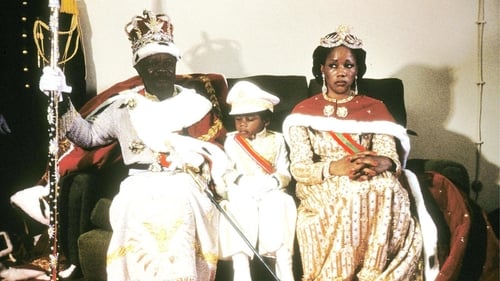

A five-year visual ethnography of traditional yet practical orchestration of Semana Santa in a small town where religious woodcarving is the livelihood. An experiential film on neocolonial Philippines’ interpretation of Saints and Gods through many forms of rituals and iconographies, exposing wood as raw material that undergoes production processes before becoming a spiritual object of devotion. - A sculpture believed to have been imported in town during Spanish colonial conquest, locally known as Mahal na Señor Sepulcro, is celebrating its 500 years. Meanwhile, composed of non-actors, Senakulo re-enacts the sufferings and death of Jesus. As the local community yearly unites to commemorate the Passion of Christ, a laborious journey unfolds following local craftsmen in transforming blocks of wood into a larger than life Jesus crucified on a 12-ft cross.

This special, behind-the-scenes film takes us on a trip to Mali to witness Amadou & Mariam at home and their musical encounter with legendary artist and producer Manu Chao during the making of their hit album Dimanche à Bamako, The music provides the lifeblood of the film, featuring the hits Sénégal Fast Food and La Realité, popular favourites Coulibaly, M’Bifé and Camions Sauvages plus a rare, unreleased live song by Manu Chao, Kira.













